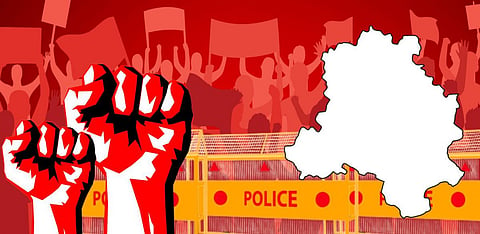

At the Ghazipur border between India's national capital Delhi and its largest state Uttar Pradesh, the convergence of heavy police deployment, barricades and logistical preparations paints a stark picture of a society grappling with dissent.
AS farmers mobilise for a 'Delhi Chalo' march, the tightening grip on their movement underscores a broader narrative of power dynamics and civil liberties. The sight of police personnel carrying lathis and tear gas, accompanied by buses filled with reinforcements, reflects a systemic response learned from past protests.
The farmers are demanding a law that will guarantee a minimum support price for their produce, four years after the Union government withdrew three controversial farm laws after similar protests in 2020.
Yet, amidst the uncertainty, the ripple effects extend beyond the protesters themselves, affecting nearby residents navigating rerouted traffic and disrupted routines. In this intricate web of resistance and control, the struggle for people's rights intersects with the daily lives of those caught in its wake, reminding us that the quest for justice transcends mere boundaries and barricades yet curbed at the same.